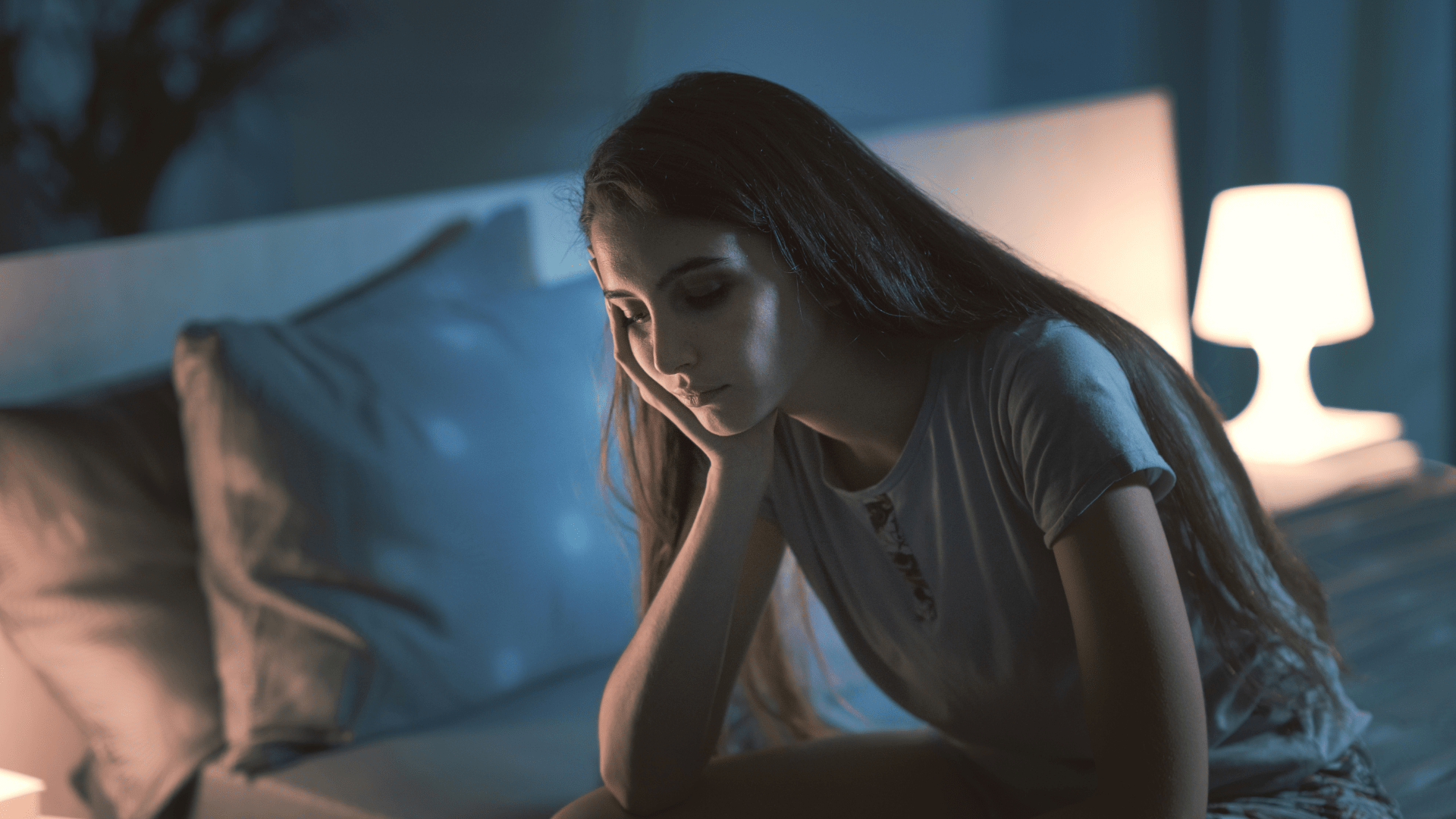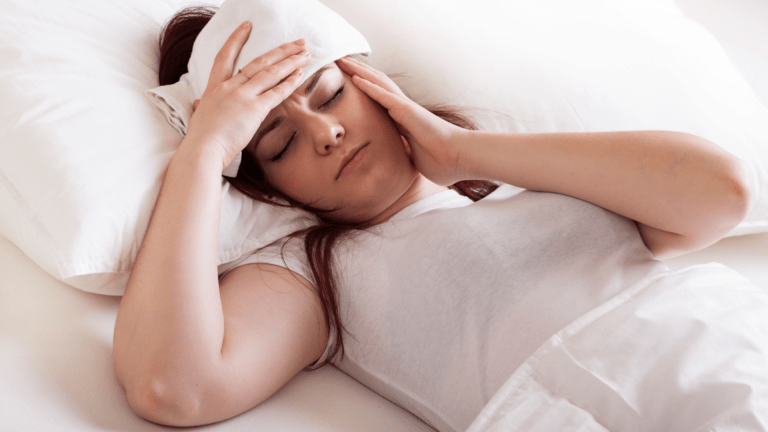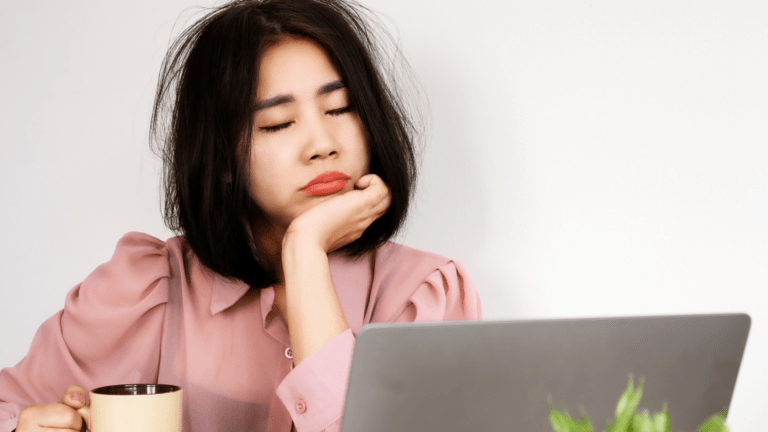It’s a common belief that anxiety and depression only bother you during the day. But that’s far from the truth. For many people, anxiety doesn’t just disappear when the sun sets; instead, it often ramps up at night. The quiet, darkness, and lack of distractions can leave you alone with your thoughts, making anxiety worse when you’re trying to sleep. This can lead to insomnia, turning what should be a time of rest into a nightly struggle.
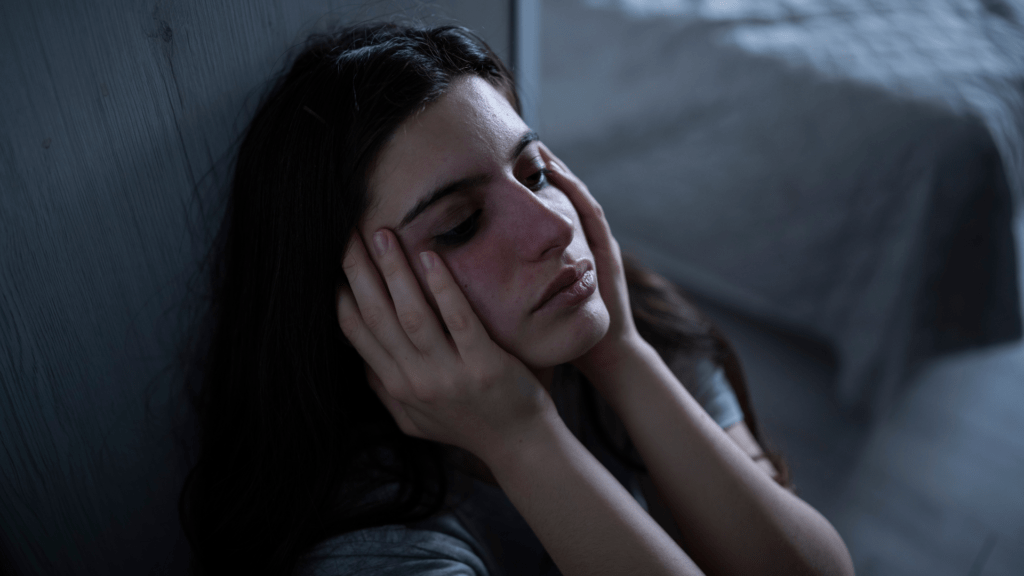
But don’t worry. You’re not alone, and there are ways to manage these feelings. In this read, we’re going to dive deep into why anxiety strikes at night and what you can do to reclaim your sleep. We’ll also discuss how anxiety, depression, and sleep deprivation are connected, and what you can do to address each of them.
Understanding Anxiety at Night, Depression, and Sleep Deprivation Psychosis
The intricate connections between nighttime anxiety, persistent depression, and the risks of sleep deprivation psychosis highlight the complex interplay of mental health and sleep. When anxiety and depression disrupt your sleep, it can lead to a cascade of issues, including frequent awakenings and headaches.
Waking up with headaches is a common symptom of poor sleep quality, often exacerbated by the anxiety and depression that plague your nights. Understanding how these conditions affect your mental health is crucial for developing effective strategies to improve your sleep and overall well-being. By addressing the root causes of your anxiety and depression, and their impact on sleep, you can break this harmful cycle and enhance both your physical and mental health.
Anxiety at Night: Why It Happens
You might wonder, “Why do I get anxious at night?” The answer lies in your brain’s natural response to stress. Throughout the day, your brain is distracted by tasks, work, or social interactions. But as you get ready for bed, there are fewer distractions, and any lingering worries have the perfect opportunity to bubble up. Nighttime anxiety can feel like a sudden rush of fear or unease as you’re lying in bed trying to sleep.
The Impact of Nighttime Anxiety on Sleep Quality
Many people find themselves replaying the day’s events or worrying about tomorrow, and this can lead to anxiety attacks at night. This surge of anxious thoughts can keep you awake for hours, making it hard to relax or drift off. You may experience physical symptoms like a racing heart, sweaty palms, or even panic while falling asleep. All of this adds up to sleep anxiety, where the very thought of going to bed makes you feel stressed.
To make matters worse, the more you try to force yourself to sleep, the more anxious you become. This is why it’s common to hear people say, “I can’t sleep because of anxiety.” The anxiety-induced insomnia becomes a vicious cycle where the fear of sleeplessness fuels more anxiety, making it even harder to sleep.
The Impact of Anxiety on Sleep
So, does anxiety cause sleeplessness? Absolutely. Anxiety disorder and sleep are closely linked, and the relationship between them can be incredibly frustrating. When anxiety is keeping you awake, it’s because your mind is in “fight or flight” mode, making it impossible to relax. This is particularly true for people with anxiety disorder insomnia. Even when you’re physically tired, your brain won’t stop racing, keeping you wide awake.
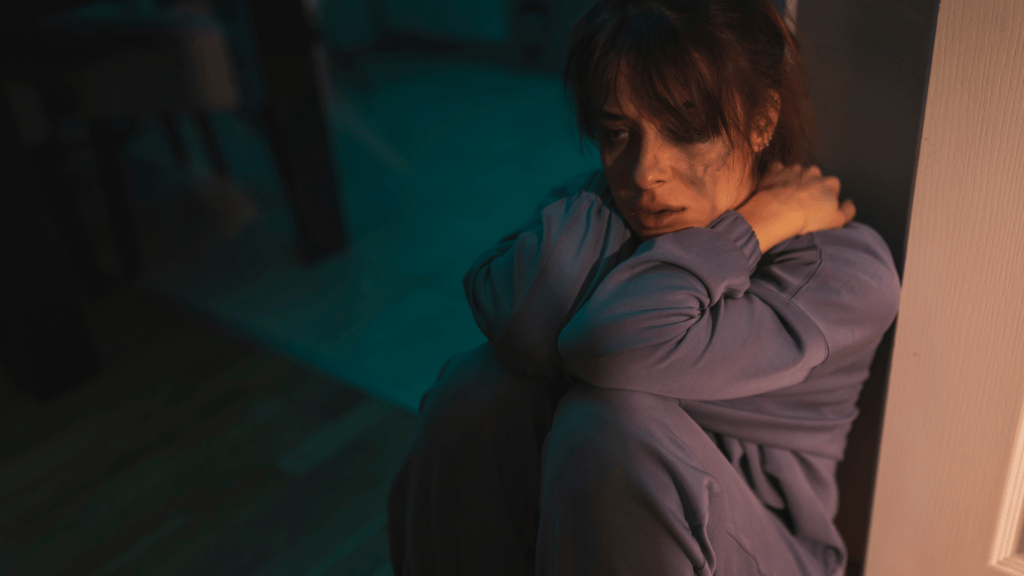
Nighttime anxiety can also be triggered by the fear of not being able to sleep. Many people struggle with anxiety when trying to sleep, especially if they’ve had previous nights where sleep was difficult. You might start to worry before you even get into bed, which only makes it harder to fall asleep when the time comes.
One of the key symptoms of sleep anxiety is a sense of dread or panic as you try to relax. Your body and mind are simply not ready to settle down, and the more you worry about falling asleep, the harder it becomes to do so. This can result in too much anxiety to sleep, leaving you lying awake, tossing and turning all night.
The Vicious Cycle of Anxiety and Sleep Problems
Anxiety and sleep problems often feed off each other, creating a vicious cycle that’s hard to break. When anxiety spikes at night, it disrupts your ability to fall asleep, which in turn worsens your anxiety and stress levels, making restful sleep even more elusive.
How Anxiety and Insomnia Feed Each Other
When anxiety keeps you awake, it sets off a chain reaction that affects your entire mental and physical health. Anxiety and insomnia feed into each other, making both conditions worse over time. It’s not just that anxiety can’t sleep – it’s that the lack of sleep makes anxiety more intense the next day. You wake up feeling exhausted, and this fatigue heightens your stress levels, leading to anxiety before bed all over again.
Nighttime anxiety often leads to hours of lying in bed wide awake, counting down the minutes until your alarm goes off. You may start to dread bedtime because of the anxiety it triggers. This is where sleep anxiety symptoms start to show. Your brain associates bedtime with stress, and the simple act of getting ready for bed can cause a spike in your anxiety levels. Many people experience a rush of anxiety when falling asleep, which can feel like an overwhelming surge of nervousness just as you’re about to drift off.
Insomnia and Anxiety: Breaking the Cycle
Breaking the cycle of anxiety and insomnia isn’t easy, but it’s possible. The first step is to understand that anxiety keeping me awake is a real issue that affects many people. You’re not alone, and there are ways to manage your anxiety so that it doesn’t ruin your sleep.
One effective strategy is to focus on go-to-sleep anxiety routines that calm your mind before bed. This might include meditation, deep breathing exercises, or simply winding down with a relaxing book or calming music. Creating a bedtime routine that signals your brain to relax can help reduce the anxiety disorder at night that keeps you up.
Understanding and Managing Anxiety-Induced Insomnia
Another important step is to acknowledge the role that sleep deprivation plays in your anxiety. When you’re not getting enough rest, your brain becomes more sensitive to stress, which makes it easier for anxiety to take hold. Getting on top of your sleep anxiety can have a huge impact on your overall mental health, helping you feel calmer and more in control during the day.
Anxiety at night is a struggle, but it doesn’t have to control your life. By understanding why, it happens and how it connects to sleep problems, you can start taking steps to regain control. Whether it’s creating a relaxing bedtime routine or managing your anxiety before bed, some solutions can help you break the cycle of anxiety-induced insomnia. The key is to be patient with yourself and keep trying different strategies until you find what works best for you.
The Impact of Anxiety and Depression on Sleep and Mental Health: Breaking the Stigma
There’s a common belief that anxiety and depression are simply “all in your head.” However, these conditions can have a profound impact on your sleep and overall health. It’s not just about feeling stressed or sad—it’s about how these mental health issues affect your body, brain, and quality of life. If you’ve been struggling with anxiety at night or find yourself in a cycle of anxiety and insomnia, you already know it’s more than just a passing feeling.
Let’s dig deeper into the relationship between anxiety, depression, and sleep problems, and how they influence one another.
Anxiety, Depression, and Their Effect on Sleep
Anxiety and depression often go hand-in-hand, creating a perfect storm for sleep issues. The stress and negative thoughts from these conditions can disrupt your sleep cycle, making it difficult to fall asleep or stay asleep, and exacerbating feelings of exhaustion and frustration.
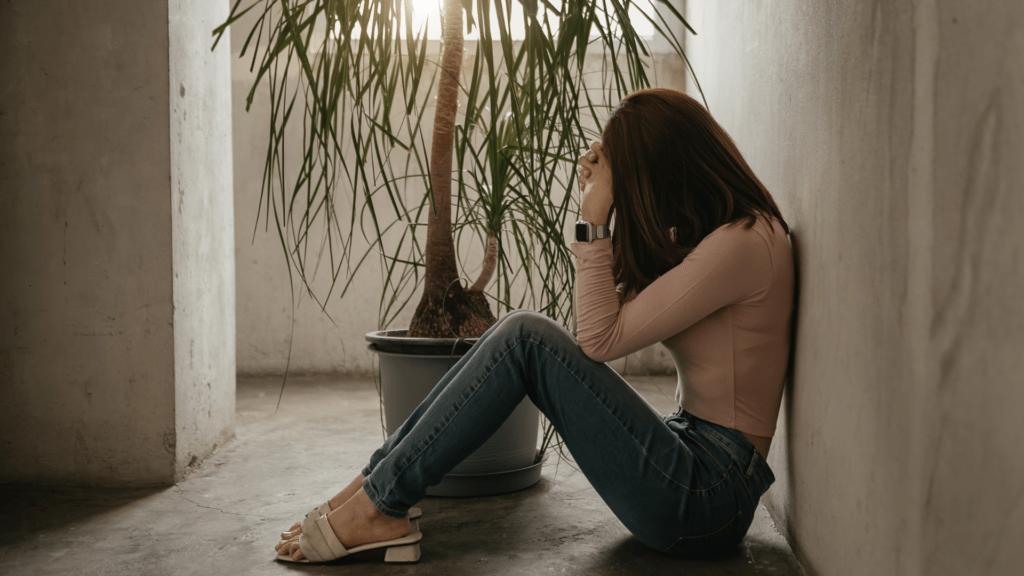
Anxiety Disorder and Sleep: How Mental Health Impacts Your Rest
If you’ve been battling with anxiety disorder and sleep, you’ve probably asked yourself, “Why do I feel so anxious when trying to sleep?” Mental health conditions like anxiety and depression often disrupt sleep patterns, leading to insomnia or fragmented sleep. Anxiety keeping me awake is a common issue because your brain doesn’t shut off when you want it to. The mind races, worries escalate, and suddenly sleep becomes impossible.
The Escalating Impact of Anxiety-Induced Insomnia
What many people don’t realize is that anxiety disorder insomnia can spiral out of control if left untreated. Anxiety-induced insomnia is more than just an inability to fall asleep; it’s your mind in constant turmoil, unable to let go of the day’s worries. Nighttime anxiety can sometimes feel like your brain is sabotaging your rest.
If you’ve experienced a rush of anxiety when falling asleep, you’re not alone. Sleep anxiety symptoms can include rapid heart rate, a tight chest, and restlessness that makes it impossible to drift off. When anxiety when trying to sleep becomes the norm, you might find yourself dreading bedtime and feeling too anxious to sleep. This further aggravates your mental state, setting off a negative feedback loop where anxiety at night fuels insomnia, which in turn heightens your anxiety during the day.
Depression and Sleep: The Double-Edged Sword
On the other side of the mental health coin is depression, which can trick you into thinking that all you need is a bit more sleep to feel better. But this isn’t always the case. Depression and sleep are closely linked, but the relationship is complicated. While depression often causes excessive sleepiness and fatigue, it can also lead to insomnia. You might feel exhausted yet unable to sleep—a cruel paradox that leaves you stuck in a cycle of can’t sleep anxiety and fatigue.
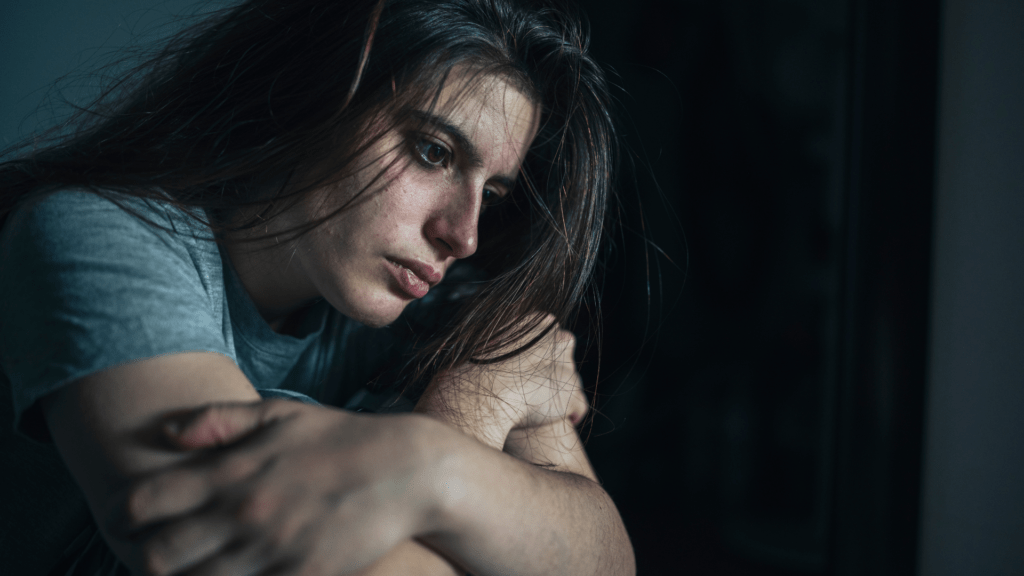
Addressing Depression and Anxiety Through Better Sleep
There are natural cures for depression that can help, such as exercise, mindfulness, and proper nutrition, but it’s crucial to address the underlying issue: how anxiety and depression are disrupting your sleep. This isn’t something you can simply “sleep off”—it requires a holistic approach to healing both your mind and your body. Dealing with depression without addressing your sleep issues is like trying to fix a car by only changing the tires when the engine needs repair.
The connection between anxiety, depression, and sleep is often underestimated. Untreated anxiety disorder at night or anxiety disorder insomnia can eventually lead to more serious mental health conditions. That’s why managing your mental health and understanding how it impacts your sleep is key to breaking this harmful cycle.
Sleep Deprivation and Mental Health: The Hidden Dangers
Sleep deprivation can significantly impair mental health, making you more vulnerable to conditions like paranoia and psychosis. The lack of sleep exacerbates anxiety and depression, creating a cycle that can be challenging to break.
Can Lack of Sleep Cause Paranoia and Psychosis?
One of the scariest side effects of sleep deprivation is how it can distort your perception of reality. Many people wonder, “Can lack of sleep cause paranoia?” The answer is yes. Sleep deprivation can have severe effects on your mental health, including paranoia and even psychosis. If you’re going days without proper rest, your brain starts to malfunction, which can lead to irrational thoughts, hallucinations, and extreme anxiety.
For those dealing with chronic insomnia, the effects can be devastating. Insomnia induced psychosis is real, and it’s terrifying. When you’re not getting enough sleep, your brain struggles to function normally, which can lead to symptoms like sleep paranoia, where you feel suspicious of people or situations around you. This paranoia isn’t just in your head—lack of sleep has been shown to trigger these symptoms in people who otherwise wouldn’t experience them.
Sleep deprivation psychosis goes even further. Can sleep deprivation cause psychosis? Absolutely. The longer you go without sleep, the more likely you are to experience severe mental health issues. Symptoms like disorganized thinking, hallucinations, and a break from reality are not uncommon after several nights of poor sleep. Studies show that sleep-deprivation schizophrenia can be triggered in people who are already predisposed to the condition. While sleep deprivation alone may not cause schizophrenia, it can certainly push someone closer to the edge.
Insomnia and Paranoia: Breaking the Cycle
Lack of sleep and paranoia can go hand in hand, especially when you’re dealing with insomnia. Many people don’t realize how deeply sleep affects their mental health until they’ve been deprived of it for too long. Insomnia and paranoia often coexist, feeding off each other in a cycle that’s hard to break. You might feel more paranoid because you’re exhausted, and in turn, that paranoia keeps you awake at night.
Understanding the psychological effects of sleep deprivation is key to breaking free from this cycle. Sleep induced psychosis can develop if your sleep issues go untreated for too long, and this can have lasting effects on your overall mental well-being. The first step is acknowledging that your sleep habits need to change. If you’re constantly asking, “How does sleep affect mental health?”, the answer is simple: it’s crucial. Getting enough rest is one of the best things you can do for your mind.
For those experiencing sleep psychosis symptoms, professional treatment may be necessary. Sleep deprivation psychosis treatment typically involves a combination of medication and therapy to help restore a healthy sleep pattern and stabilize your mental health. The sooner you address these issues, the better your chances of avoiding the long-term consequences of sleep deprivation.
Impact of Sleep Deprivation on Mental Health
There’s a widespread belief that sleep deprivation only affects your physical energy and leaves you feeling tired. However, this isn’t the full picture. In reality, lack of sleep takes a toll on your mental health, often leading to severe consequences like paranoia, anxiety, and even psychosis. While many people associate sleep deprivation with fatigue, the impact on mental health is just as significant—if not more so.
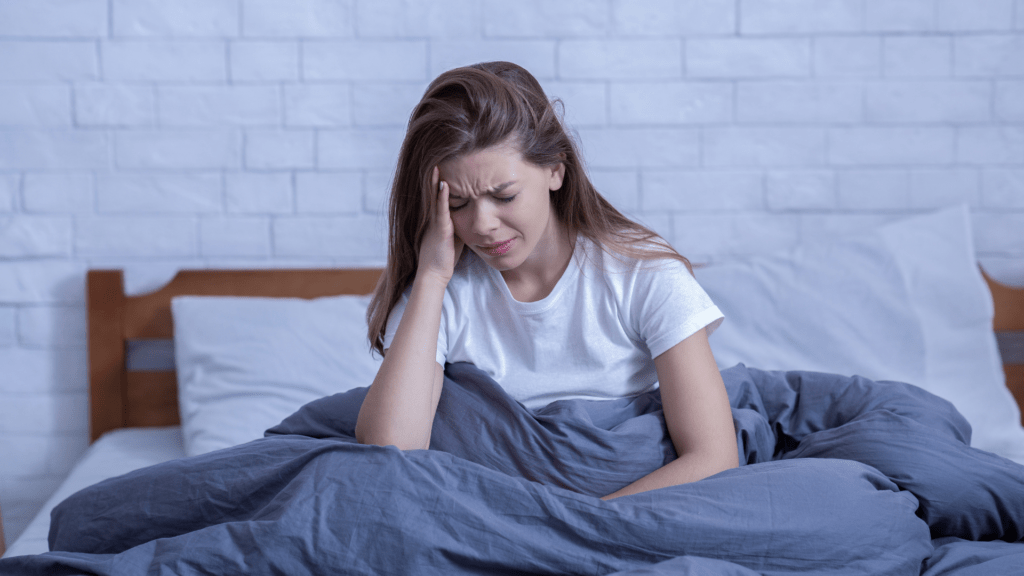
How Sleep Deprivation Affects the Mind
Sleep and mental health are deeply intertwined. When you don’t get enough sleep, your brain struggles to regulate emotions, cope with stress, and manage cognitive functions. A lack of proper rest disrupts your brain’s ability to process thoughts rationally, which is why anxiety and insomnia often go hand in hand. You might find yourself lying awake, too anxious to sleep, as your brain races through stressful thoughts, creating a vicious cycle.
Anxiety-induced insomnia is a common result of sleep deprivation. As you become more sleep-deprived, the stress and anxiety keep escalating. This can lead to intense nighttime anxiety, causing you to experience panic while falling asleep. Many people report a sudden rush of anxiety when trying to rest, leading to an ongoing battle with sleep anxiety. The more anxious you feel, the harder it becomes to fall asleep.
Psychological Effects of Sleep Deprivation
In severe cases, sleep deprivation can go beyond anxiety and cause more serious mental health issues like paranoia and even psychosis. Sleep deprivation psychosis is a condition where an individual loses touch with reality after extended periods of insufficient sleep. Symptoms include hallucinations, delusions, and disorganized thinking. This is why it’s crucial to understand that sleep isn’t just a luxury; it’s a fundamental part of maintaining mental stability.
Lack of sleep can also aggravate pre-existing conditions like depression. For individuals battling anxiety and depression, the connection between sleep and mental health becomes even more crucial. When sleep deprivation kicks in, depressive symptoms can worsen, leading to an endless cycle where anxiety keeps you awake, and lack of sleep deepens your depression.
Can Sleep Deprivation Lead to Long-Term Mental Health Issues?
Yes, it can. Chronic sleep deprivation doesn’t just create short-term problems like anxiety attacks at night or difficulty focusing; it can also lead to long-term issues like insomnia-induced psychosis or even schizophrenia. While not everyone who experiences sleep deprivation will develop such severe conditions, the risk increases the longer you go without proper sleep.
Recovering from Sleep Deprivation Psychosis
Luckily, recovering from sleep deprivation psychosis is possible with proper treatment and care. The primary treatment is, of course, getting sufficient sleep. However, depending on the severity of the symptoms, psychological treatment may be needed. Therapy can help address the root causes of insomnia and anxiety, allowing individuals to regain control of their sleep patterns and mental health.
Strategies to Overcome Sleep Anxiety and Promote Better Sleep
It’s commonly thought that sleep anxiety is impossible to overcome without medication, but this isn’t entirely true. There are many natural strategies and lifestyle changes that can help you beat sleep anxiety and enjoy a more restful night. Let’s explore some effective approaches to deal with nighttime anxiety and improve your sleep quality.
Mindfulness and Relaxation Techniques
Mindfulness is an excellent way to tackle anxiety when trying to sleep. Practicing mindfulness techniques like deep breathing, meditation, or progressive muscle relaxation can help calm your mind before bed. These methods focus on bringing your awareness to the present moment, which can reduce the overwhelming stress and anxiety that often kicks in before sleep. By staying mindful, you can slowly start easing into a restful state rather than allowing anxious thoughts to keep you awake.
Create a Sleep-Inducing Environment
Your bedroom environment plays a huge role in how easily you fall asleep. If you’re experiencing anxiety before bed, creating a calming sleep space can help. This includes dimming the lights, minimizing noise, and keeping the room at a cool, comfortable temperature. Having a consistent bedtime routine can signal to your brain that it’s time to wind down, which is especially helpful if you have anxiety at night.
Limit Stimulants and Screen Time
One of the major triggers for anxiety before bed is the use of electronic devices and stimulants like caffeine or nicotine. Staring at screens can overstimulate your mind and make it harder for you to relax. Similarly, consuming caffeine late in the day can heighten your anxiety levels and disrupt your sleep cycle. To combat this, try cutting back on caffeine in the evening and reduce screen time an hour before bed.
Cognitive Behavioral Therapy (CBT)
Cognitive Behavioral Therapy (CBT) is a highly effective treatment for insomnia and anxiety disorders. CBT works by identifying and challenging the negative thought patterns that contribute to your anxiety, helping you develop healthier thinking habits. CBT for insomnia specifically focuses on changing the behaviors that are interfering with sleep, making it a powerful tool for those dealing with anxiety-induced insomnia. Whether you’re coping with stress, anxiety disorder insomnia, or just struggling to sleep, CBT can provide long-lasting solutions.
Natural Remedies and Supplements
If you prefer a more natural approach, certain supplements and herbs have been shown to promote relaxation and help you fall asleep. Natural cures for anxiety and insomnia, like valerian root, chamomile, and magnesium, can ease nighttime anxiety and improve sleep quality. These natural supplements are often used as alternative treatments for anxiety and depression, providing a safe option for those looking to avoid prescription medications.
Establish a Pre-Bed Routine
One of the best ways to reduce sleep anxiety is to develop a consistent pre-bed routine. This might involve taking a warm bath, reading a book, or practicing relaxation exercises. Over time, your body will start associating these activities with sleep, helping you relax more easily when bedtime arrives. If you’re constantly feeling “too anxious to sleep,” a routine like this can train your mind to recognize when it’s time to calm down and prepare for rest.
Talk to a Professional
If your anxiety is keeping you awake at night and nothing seems to help, it may be time to seek professional advice. Anxiety disorders and insomnia can sometimes require treatment beyond self-care strategies. Talking to a therapist or sleep specialist can help you identify the root causes of your sleep problems and work towards effective solutions. In severe cases, medications might be prescribed to help regulate your sleep and manage your anxiety disorder at night.
Alternative Cures for Depression and Anxiety
A common misconception is that depression and anxiety can only be effectively managed with prescription medications. While medication can be helpful for some, it’s not the only option. There are numerous alternative cures and natural remedies that can significantly improve your mental well-being. By exploring these options, you might find a path to relief that suits your lifestyle and preferences.
Natural Remedies for Depression and Anxiety
Natural remedies can offer significant relief for those struggling with depression and anxiety. Supplements such as St. John’s Wort, omega-3 fatty acids, and magnesium have been shown to help alleviate symptoms of depression. These natural depression supplements can support brain health and mood regulation, offering a gentler alternative to pharmaceutical treatments. Similarly, herbs like valerian root and chamomile can help reduce anxiety, promoting relaxation and better sleep.
Mindfulness and Meditation
Mindfulness and meditation are powerful tools for managing both anxiety and depression. Practices like mindfulness meditation can help you become more aware of your thoughts and feelings, allowing you to manage them more effectively. Regular meditation has been shown to reduce stress, improve mood, and increase overall emotional resilience. By integrating mindfulness techniques into your daily routine, you can address the root causes of anxiety and depression, rather than just masking the symptoms.
Exercise and Physical Activity
Regular physical activity is another effective way to combat depression and anxiety. Exercise boosts endorphins, which are natural mood lifters, and helps regulate sleep patterns. Engaging in activities like walking, jogging, or yoga can be incredibly beneficial for mental health. Not only does exercise help reduce symptoms of anxiety and depression, but it also promotes overall physical health, which can further enhance your emotional well-being.
Nutritional Interventions
What you eat can have a profound impact on your mental health. A balanced diet rich in fruits, vegetables, lean proteins, and whole grains can help support brain function and mood stability. Foods high in antioxidants and omega-3 fatty acids, such as fish and nuts, can be particularly beneficial for mental health. Avoiding excessive sugar and processed foods can also help stabilize mood and reduce symptoms of anxiety and depression.
Therapy and Counseling
Therapy and counseling provide valuable support for managing depression and anxiety. Cognitive Behavioral Therapy (CBT) and other therapeutic approaches can help you identify and change negative thought patterns, leading to improved emotional health. Therapy offers a safe space to explore your feelings and develop coping strategies, making it a crucial component of any depression or anxiety treatment plan.
Lifestyle Changes
Making positive lifestyle changes can also support mental health. Establishing a consistent sleep schedule, reducing alcohol and caffeine consumption, and finding healthy ways to manage stress can all contribute to improved emotional well-being. Developing a routine that includes self-care practices like journaling or engaging in hobbies can also provide relief from depression and anxiety.
Managing Sleep Deprivation and Its Psychological Effects
It’s a common belief that occasional sleep deprivation only results in temporary fatigue and irritability. However, the effects of chronic sleep deprivation can be far more severe, impacting both your mental and physical health. Understanding how sleep deprivation affects your mental health and learning strategies to manage it can help you maintain better overall well-being.
Psychological Effects of Sleep Deprivation
Sleep deprivation can lead to a range of psychological issues, including increased anxiety, paranoia, and even psychosis. When you’re consistently sleep-deprived, your brain’s ability to regulate emotions and process information is impaired. This can result in heightened anxiety levels and difficulty managing stress, which often exacerbates insomnia and other sleep disorders. In severe cases, prolonged sleep deprivation can lead to sleep deprivation psychosis, where you experience symptoms like hallucinations and delusions.
Paranoia and Sleep Deprivation
One of the more disturbing effects of chronic sleep deprivation is paranoia. Lack of sleep can make you more susceptible to feelings of distrust and suspicion, which can negatively impact your personal and professional relationships. Sleep deprivation paranoia often manifests as irrational fears or doubts that are exacerbated by a lack of rest. Addressing sleep deprivation and improving your sleep hygiene can help mitigate these symptoms.
Psychosis and Sleep Deprivation
Sleep deprivation psychosis is a serious condition that can occur after extended periods of inadequate sleep. Symptoms of sleep deprivation psychosis can include disorganized thinking, hallucinations, and severe mood swings. While this condition is typically reversible with proper sleep restoration, it underscores the importance of maintaining healthy sleep habits to prevent such severe psychological effects.
Managing Sleep Deprivation
Effective management of sleep deprivation involves addressing both the quantity and quality of your sleep. Creating a sleep-friendly environment, such as keeping your bedroom dark and cool, and establishing a consistent sleep schedule can improve your sleep quality. Additionally, practicing relaxation techniques before bed and reducing exposure to screens can help ease the transition into sleep.
Seeking Professional Help
If sleep deprivation is causing significant psychological distress or interfering with your daily life, it’s essential to seek professional help. A healthcare provider can help identify underlying causes of sleep problems and provide appropriate treatment options. In some cases, therapy or medication may be necessary to address both sleep issues and associated mental health concerns.
Long-Term Strategies for Better Sleep
To prevent the recurrence of sleep deprivation and its psychological effects, focus on long-term strategies for better sleep. This includes maintaining a healthy lifestyle, managing stress effectively, and addressing any underlying mental health conditions. You can improve your overall mental health and well-being by prioritizing sleep and adopting healthy sleep habits.
